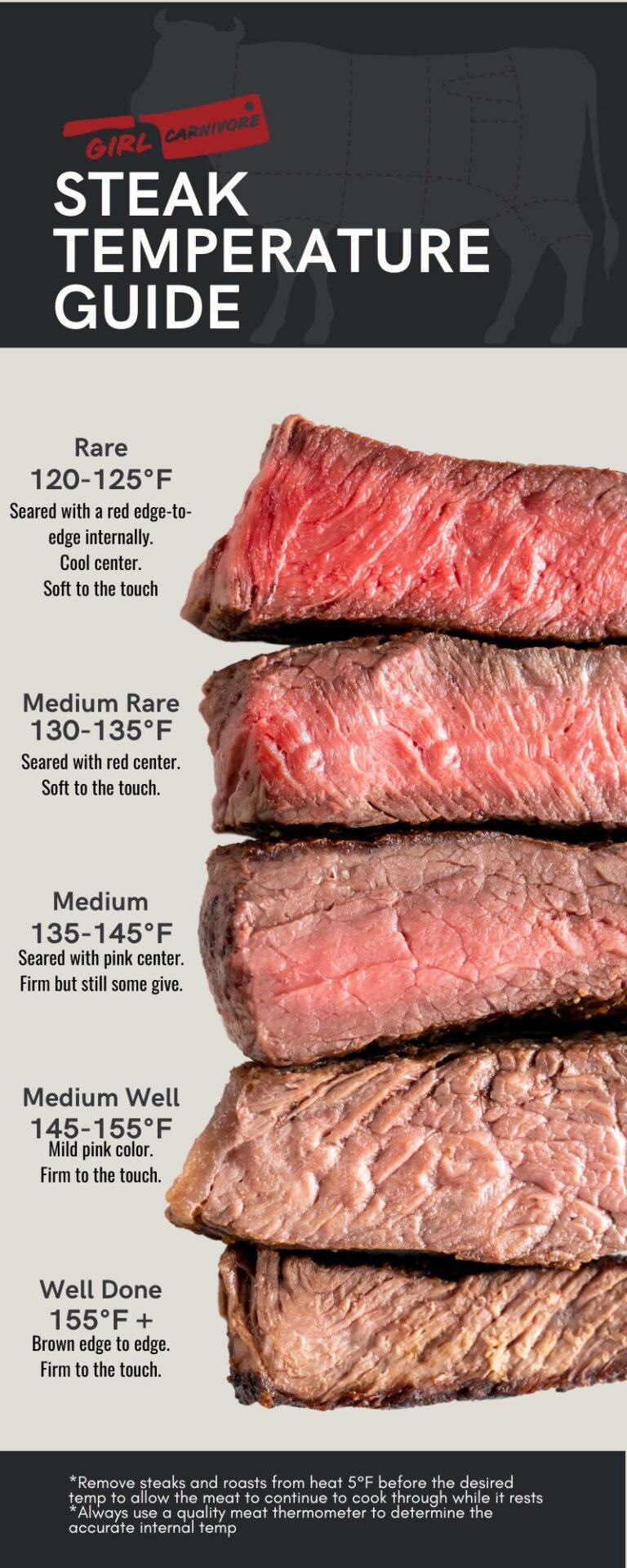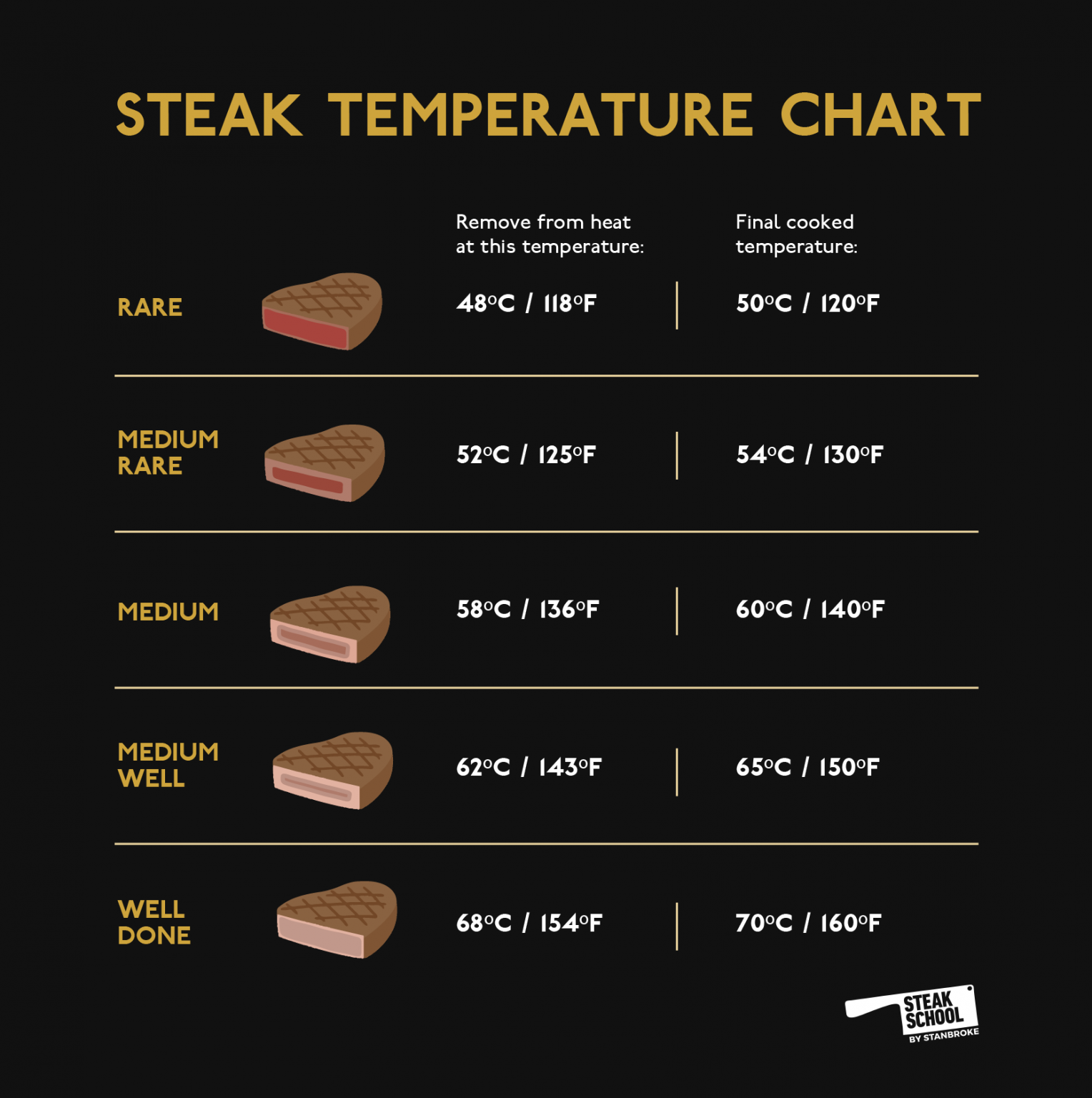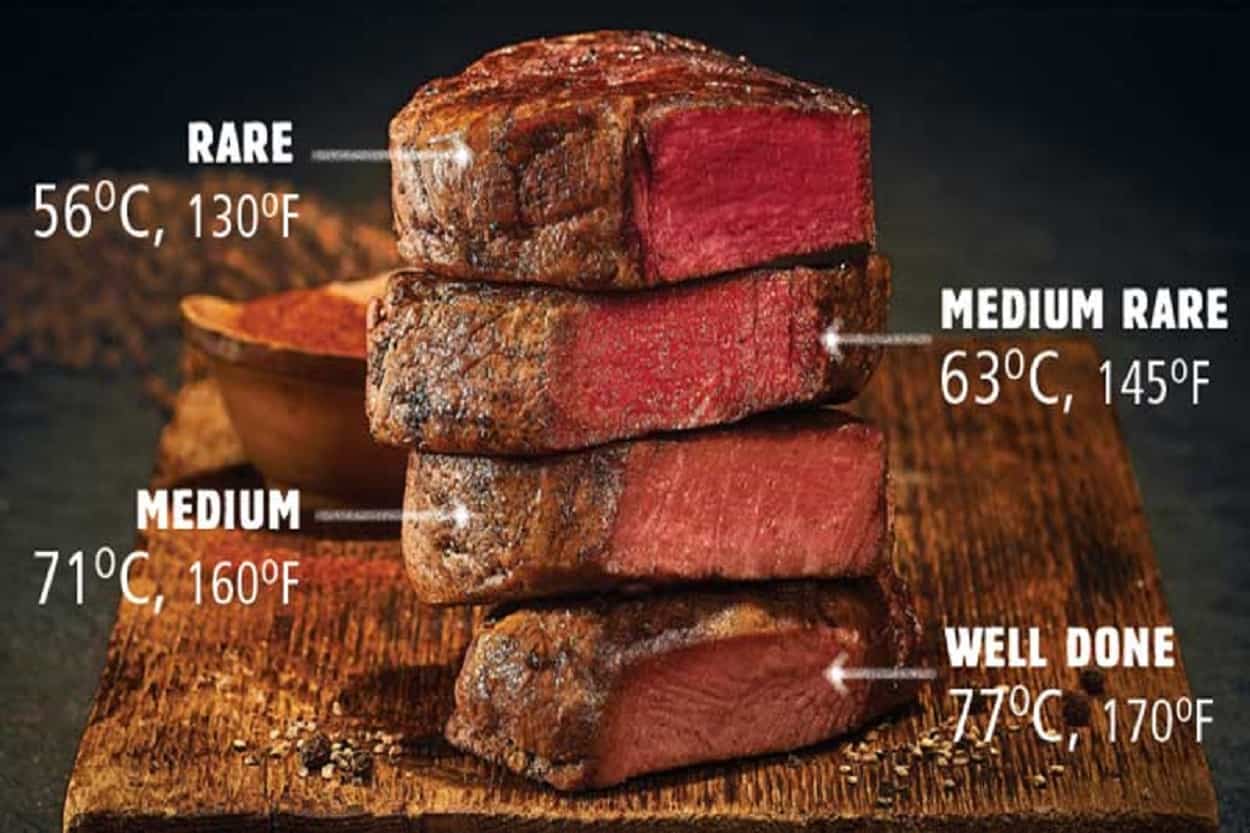Listen up, steak lovers! If you've ever bitten into a steak only to find it overcooked or underwhelming, you're not alone. The secret to a perfect steak lies in mastering the internal temp steak. Yep, that's right—temperature is the key to unlocking the juiciest, most flavorful cuts of meat. Whether you're a seasoned chef or a backyard griller, understanding internal steak temps can elevate your cooking game to the next level.
Now, before we dive in, let's get one thing straight: cooking a steak isn't rocket science, but it does require a bit of finesse. Knowing the right internal temp steak for your preferred doneness is crucial if you want to avoid disappointment. From rare to well-done, every level of doneness has its own sweet spot, and we're here to help you hit that mark every time.
So, grab your thermometer, fire up the grill, and let's get to work. This guide is packed with everything you need to know about internal steak temps, from the basics to advanced techniques. We'll cover the science behind it, offer pro tips, and even throw in some fun facts to keep things interesting. Ready to level up your steak game? Let's go!
Read also:Subhashree Sahu Mms Video The Untold Story Facts And Controversies
Table of Contents
- Introduction to Internal Temp Steak
- The Science Behind Steak Temperature
- Types of Steak Doneness and Their Temps
- Essential Tools for Measuring Internal Temp Steak
- Cooking Methods and Their Impact on Temperature
- Pro Tips for Perfect Internal Temp Steak
- Common Mistakes to Avoid
- Health Considerations and Food Safety
- Delicious Recipes Featuring Perfectly Cooked Steak
- Conclusion: Master Your Steak Game
Introduction to Internal Temp Steak
Why Internal Temp Matters
Let's get one thing straight: the internal temp steak is not just a number on a thermometer. It's the difference between a tender, juicy steak and a dry, overcooked mess. When you cook a steak, the internal temperature determines how the proteins in the meat react, affecting texture and flavor. This is why understanding the ideal temp for your preferred doneness is so important.
Think about it this way: if you're aiming for medium-rare, you want that pink center with a slight resistance when you press it. If you overshoot, you end up with a gray, tough steak that's just not worth your time—or your wallet. So, yeah, internal temp steak is kind of a big deal.
The Science Behind Steak Temperature
How Heat Affects Steak
Alright, let's nerd out for a sec. When you cook a steak, the heat causes the proteins in the meat to contract and coagulate. This process is called denaturation, and it's what gives cooked meat its texture and flavor. The higher the temperature, the more the proteins contract, which is why overcooked steak becomes tough.
Here's the kicker: different cuts of meat have varying fat content and muscle fibers, so they respond differently to heat. That's why knowing the internal temp steak for your specific cut is crucial. For example, a ribeye with its marbling can handle a bit more heat than a lean filet mignon.
Types of Steak Doneness and Their Temps
When it comes to steak doneness, there's no one-size-fits-all. Everyone has their preference, and each level of doneness has its own internal temp steak. Here's a quick rundown:
- Rare: 120-125°F (49-52°C)
- Medium-Rare: 130-135°F (54-57°C)
- Medium: 140-145°F (60-63°C)
- Medium-Well: 150-155°F (66-68°C)
- Well-Done: 160°F (71°C) and above
Remember, these temps are guidelines. Always let your steak rest after cooking to allow the juices to redistribute. This will ensure a juicier, more flavorful bite.
Read also:Exploring The World Of Sexy Adult Open A Comprehensive Guide
Essential Tools for Measuring Internal Temp Steak
Invest in a Good Thermometer
Let's be real: you can't rely on guesswork when it comes to internal temp steak. A good meat thermometer is your best friend in the kitchen. There are two main types to consider:
- Instant-Read Thermometers: Perfect for quick readings, these thermometers give you an accurate temp in seconds.
- Leave-In Thermometers: Ideal for larger cuts of meat, these thermometers stay in the meat while it cooks, giving you continuous readings.
Pro tip: always insert the thermometer into the thickest part of the steak, avoiding any bones or fat, for the most accurate reading.
Cooking Methods and Their Impact on Temperature
Grilling vs. Pan-Seared
Not all cooking methods are created equal when it comes to achieving the perfect internal temp steak. Grilling gives you that delicious char on the outside while keeping the inside juicy, but it can be tricky to control the heat. Pan-searing, on the other hand, offers more precision, especially if you use a cast-iron skillet.
Here's a fun fact: reverse searing, a method where you cook the steak slowly in the oven before searing it in a hot pan, can give you even more control over the internal temp steak. It's a game-changer for those who want that perfect crust with a tender center.
Pro Tips for Perfect Internal Temp Steak
Secrets from the Pros
Want to know how the pros always get their steak just right? Here are a few insider tips:
- Let It Rest: Always let your steak rest for a few minutes after cooking. This allows the juices to redistribute, resulting in a juicier steak.
- Season Liberally: Don't be shy with the salt and pepper. Season your steak generously before cooking for maximum flavor.
- Use the Right Cut: Different cuts of steak have different fat contents and textures, so choose the one that suits your taste and cooking method.
And remember, practice makes perfect. The more you cook, the better you'll get at hitting that ideal internal temp steak.
Common Mistakes to Avoid
Don't Overcook It!
One of the biggest mistakes people make when cooking steak is overcooking it. Here are a few common pitfalls to avoid:
- Not Using a Thermometer: Guessing the internal temp steak is a recipe for disaster. Always use a thermometer to ensure accuracy.
- Flipping Too Often: Resist the urge to flip your steak every minute. Let it develop a nice crust before flipping.
- Skipping the Rest: Skipping the resting period can lead to a dry steak. Always let it rest for a few minutes before serving.
By avoiding these mistakes, you'll be well on your way to steak perfection.
Health Considerations and Food Safety
Safe Internal Temp Steak
While we all love a juicy steak, it's important to consider food safety. The USDA recommends cooking beef to a minimum internal temp steak of 145°F (63°C) for food safety. However, many chefs and food enthusiasts believe that lower temps, especially for whole cuts of meat, are safe if the meat is fresh and properly handled.
When in doubt, always err on the side of caution and use a thermometer to ensure your steak reaches a safe internal temp steak.
Delicious Recipes Featuring Perfectly Cooked Steak
Try These Recipes
Ready to put your newfound knowledge to the test? Here are a couple of recipes to get you started:
- Grilled Steak with Chimichurri Sauce: Fire up the grill and cook your steak to your desired internal temp steak. Serve with a tangy chimichurri sauce for a flavor explosion.
- Pan-Seared Steak with Herb Butter: Sear your steak in a hot pan until it reaches the perfect internal temp steak. Top with a pat of herb butter for a rich, indulgent finish.
These recipes are sure to impress your friends and family, and they'll have them begging for seconds.
Conclusion: Master Your Steak Game
So there you have it, folks. Mastering the art of internal temp steak is all about understanding the science, using the right tools, and practicing your technique. Whether you're cooking for one or hosting a dinner party, knowing the ideal internal temp steak for your preferred doneness will take your meals to the next level.
Now it's your turn to take action. Grab that thermometer, fire up the grill, and start experimenting. And don't forget to share your favorite steak recipes and tips in the comments below. Let's keep the steak game strong!
Happy cooking, and remember: the perfect steak is just a temp away!



